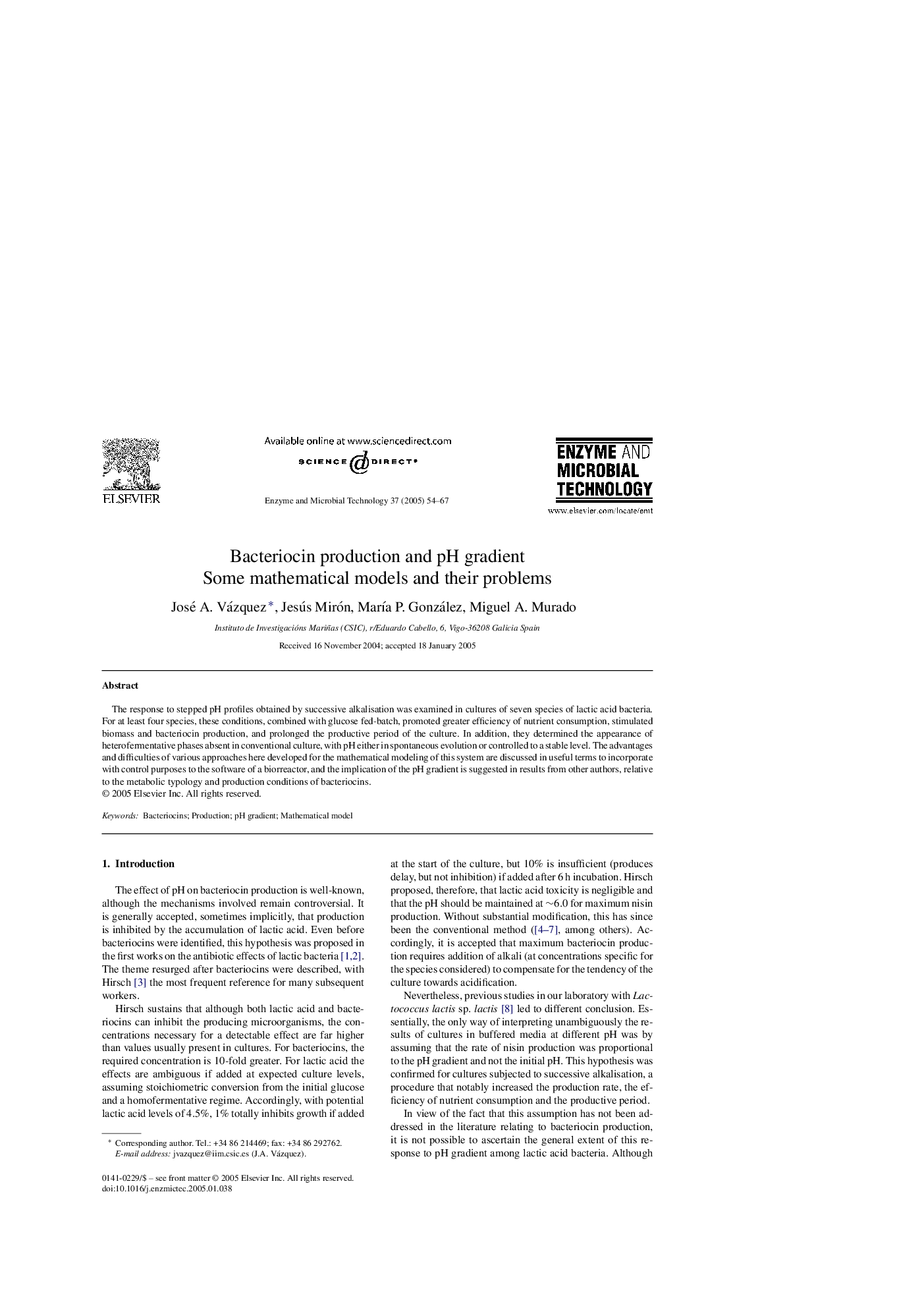| Article ID | Journal | Published Year | Pages | File Type |
|---|---|---|---|---|
| 10233557 | Enzyme and Microbial Technology | 2005 | 14 Pages |
Abstract
The response to stepped pH profiles obtained by successive alkalisation was examined in cultures of seven species of lactic acid bacteria. For at least four species, these conditions, combined with glucose fed-batch, promoted greater efficiency of nutrient consumption, stimulated biomass and bacteriocin production, and prolonged the productive period of the culture. In addition, they determined the appearance of heterofermentative phases absent in conventional culture, with pH either in spontaneous evolution or controlled to a stable level. The advantages and difficulties of various approaches here developed for the mathematical modeling of this system are discussed in useful terms to incorporate with control purposes to the software of a biorreactor, and the implication of the pH gradient is suggested in results from other authors, relative to the metabolic typology and production conditions of bacteriocins.
Related Topics
Physical Sciences and Engineering
Chemical Engineering
Bioengineering
Authors
José A. Vázquez, Jesús Mirón, MarÃa P. González, Miguel A. Murado,
